From Rapa Nui to Doha - Meherio Rapu Reflects on Home, Culture and Life in Qatar
2025/08/26
Years of Culture
false
2025/08/26
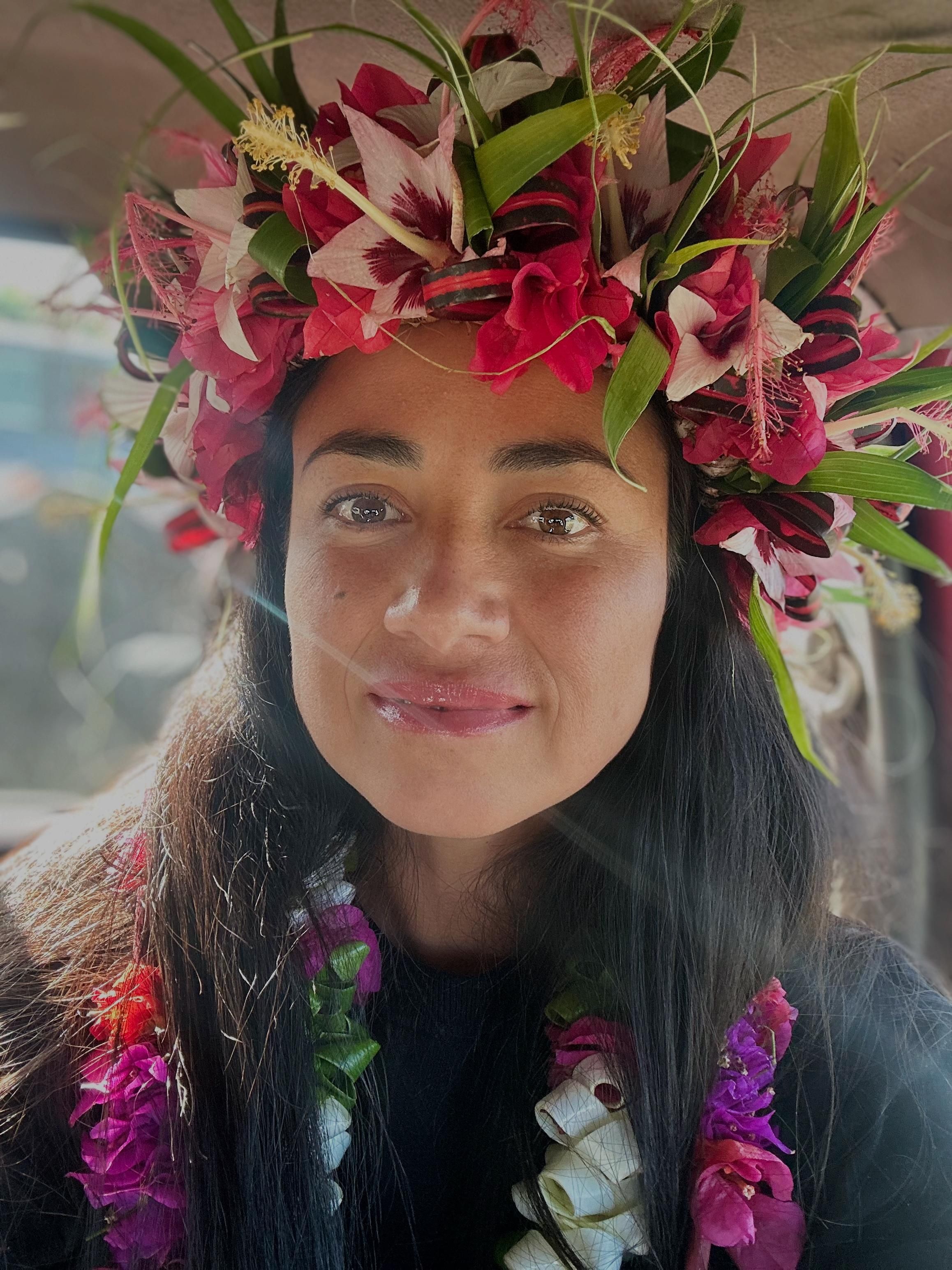
Growing up on one of the world’s most remote islands, Meherio was immersed in the traditions, language, and community spirit of Rapa Nui. Now based in Qatar for almost a decade, she brings that heritage to life through her work as a Spanish teacher, educational psychologist, and content creator.
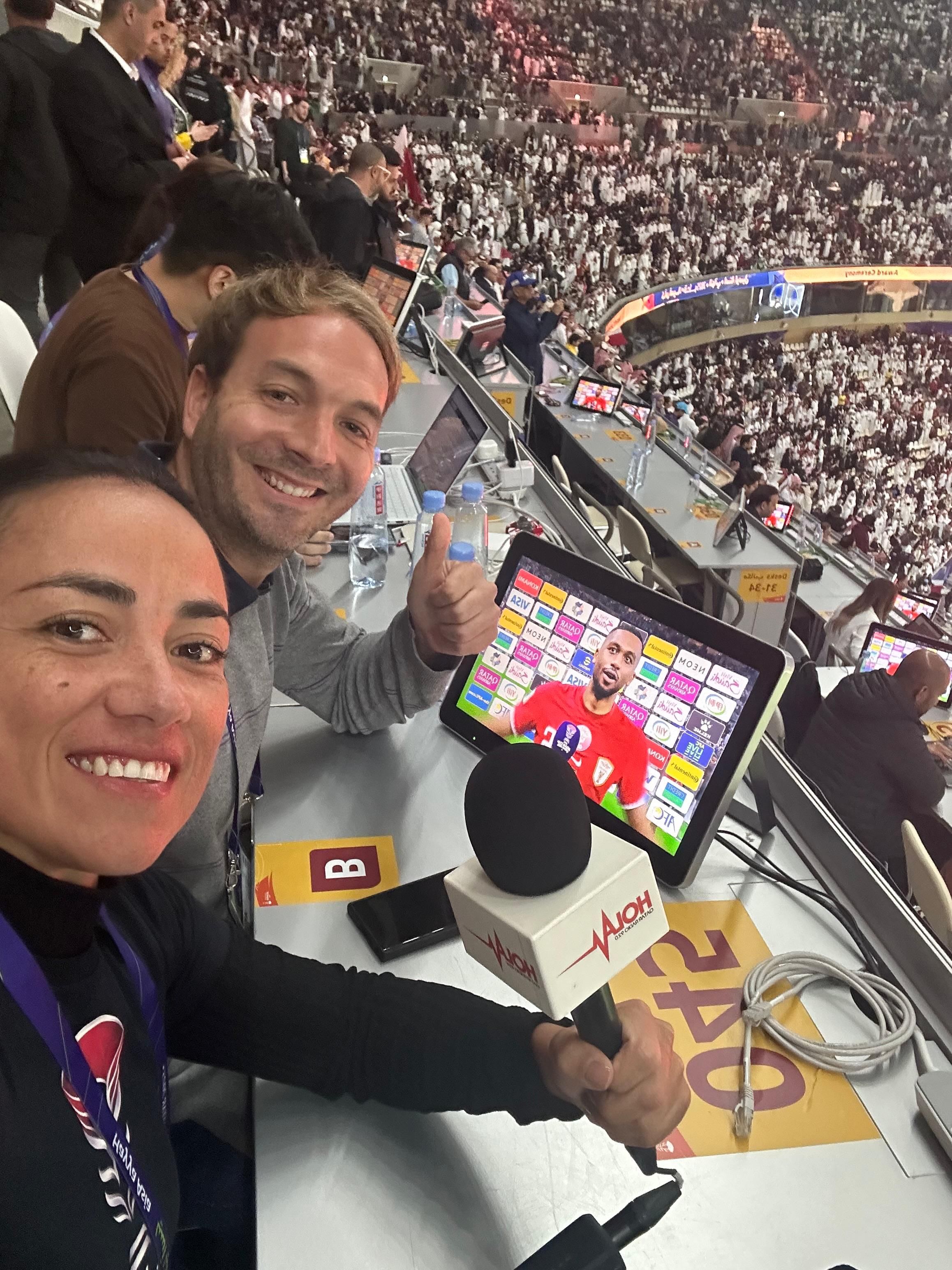
From building a life with her family in Doha to covering the FIFA World Cup for Spanish-language platform Hola Qatar, Meherio’s journey is one of deep cultural connection.
In this thoughtful interview, she reflects on her early life, moving to Qatar, and the things that have shaped her sense of home. She also shares her hopes for fostering deeper ties between Latin American and Qatari communities during this landmark year.
Growing up on Rapa Nui was a unique and beautiful experience. Back then, our island had a small community of about 3,500 people and just one school. Life was simple (we didn’t even have live television until the year 2000). My childhood was filled with outdoor adventures: enjoying the ocean, surfing, paddling, and spending time in nature.
Dance was a fundamental part of my life from a young age, and it became one of my strongest connections to our heritage. My family has always been deeply committed to preserving the Rapa Nui culture, and that environment shaped who I am.
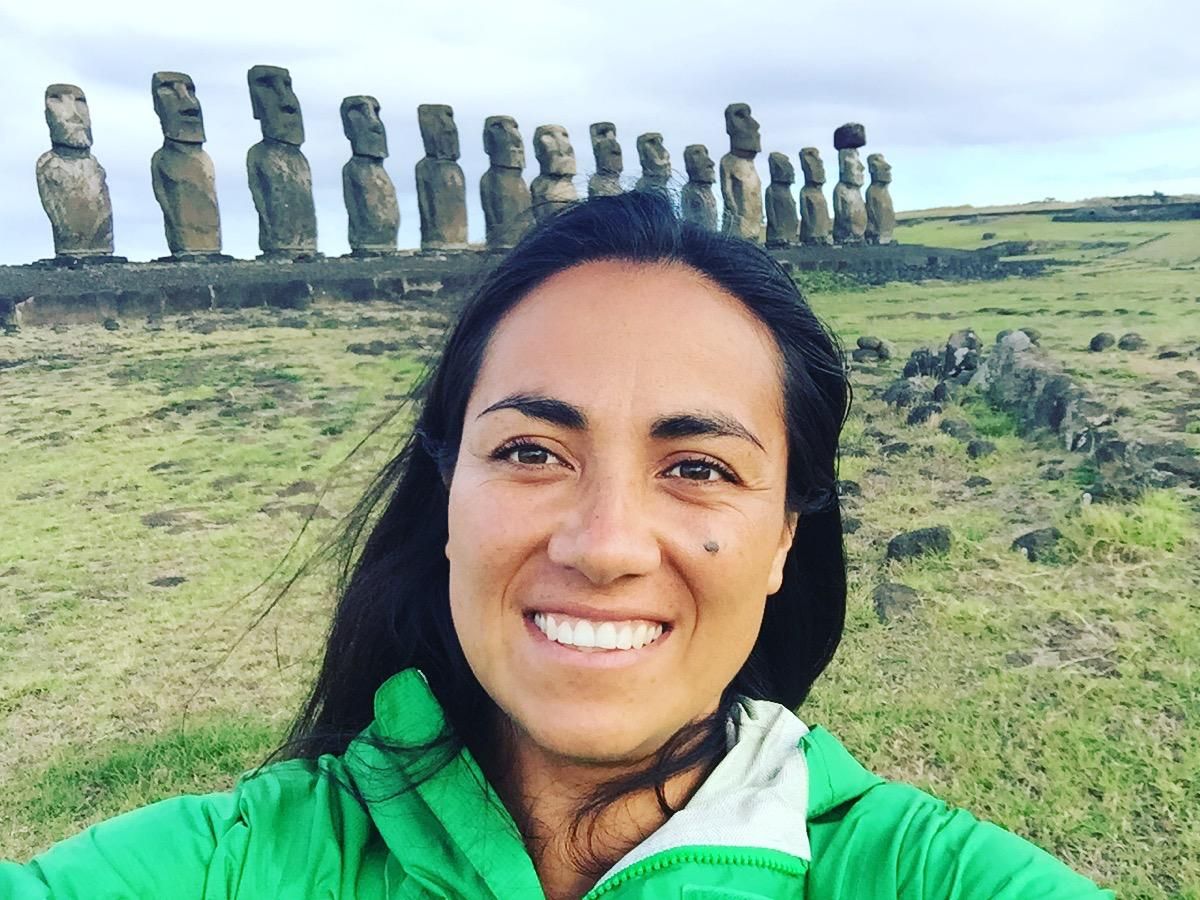
I especially loved being part of traditional festivals, like Tapati, where we would sing, dance, and honour our ancestors. Those memories and values have stayed with me and continue to inspire everything I do today.
Moving to Qatar nine years ago was a big change — culturally, geographically, and emotionally. Coming from a small island like Rapa Nui to the dynamic and rapidly growing city of Doha was both exciting and overwhelming at times.
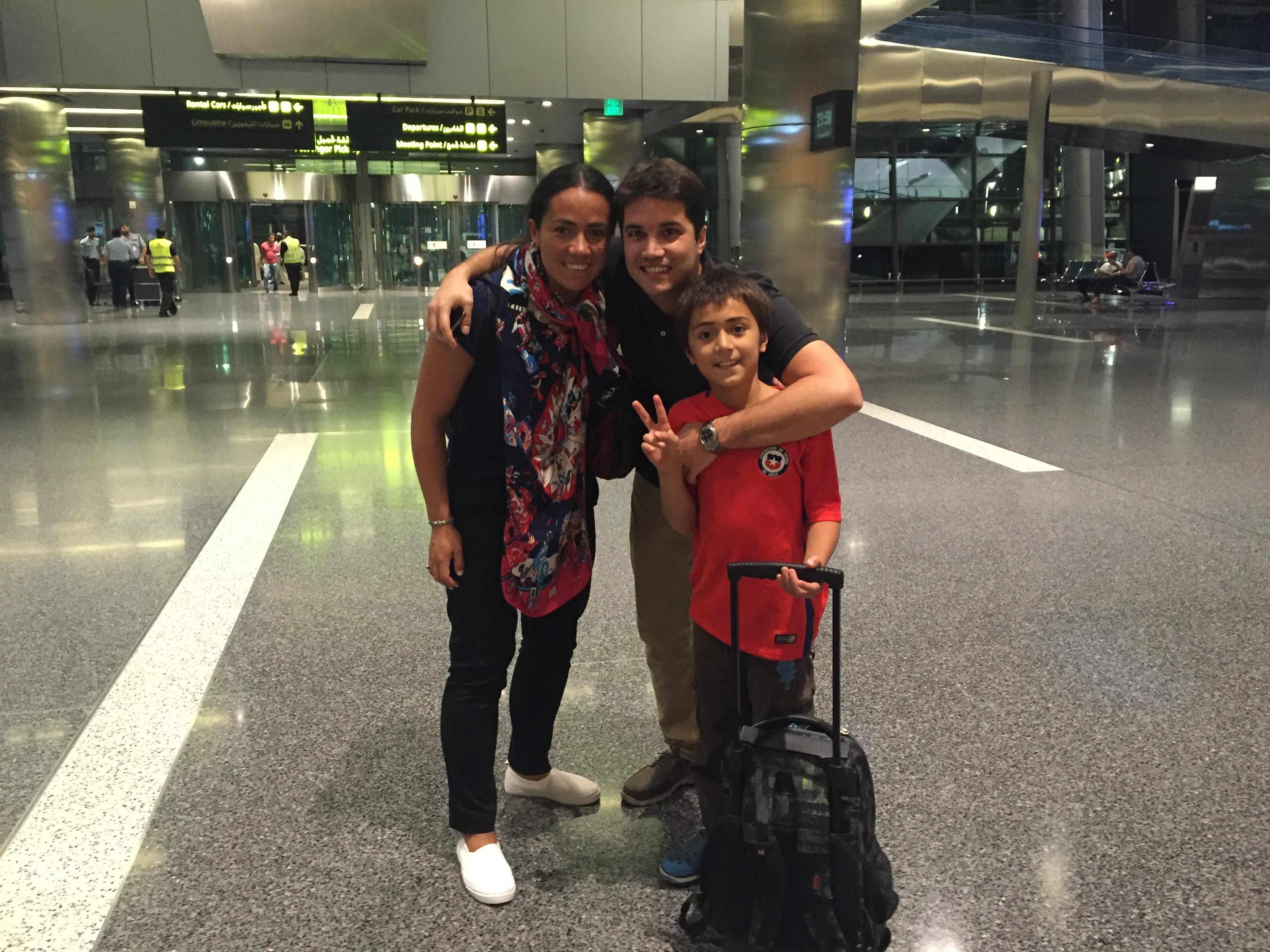
What helped me most was the support of my husband and the sense of curiosity I brought with me. I was eager to learn about Qatari culture, traditions, and the diverse international community living here.
Over time, I found a sense of belonging through teaching, connecting with people from different backgrounds, and sharing my own culture. Being part of projects that promote intercultural dialogue and creativity also helped me feel rooted.
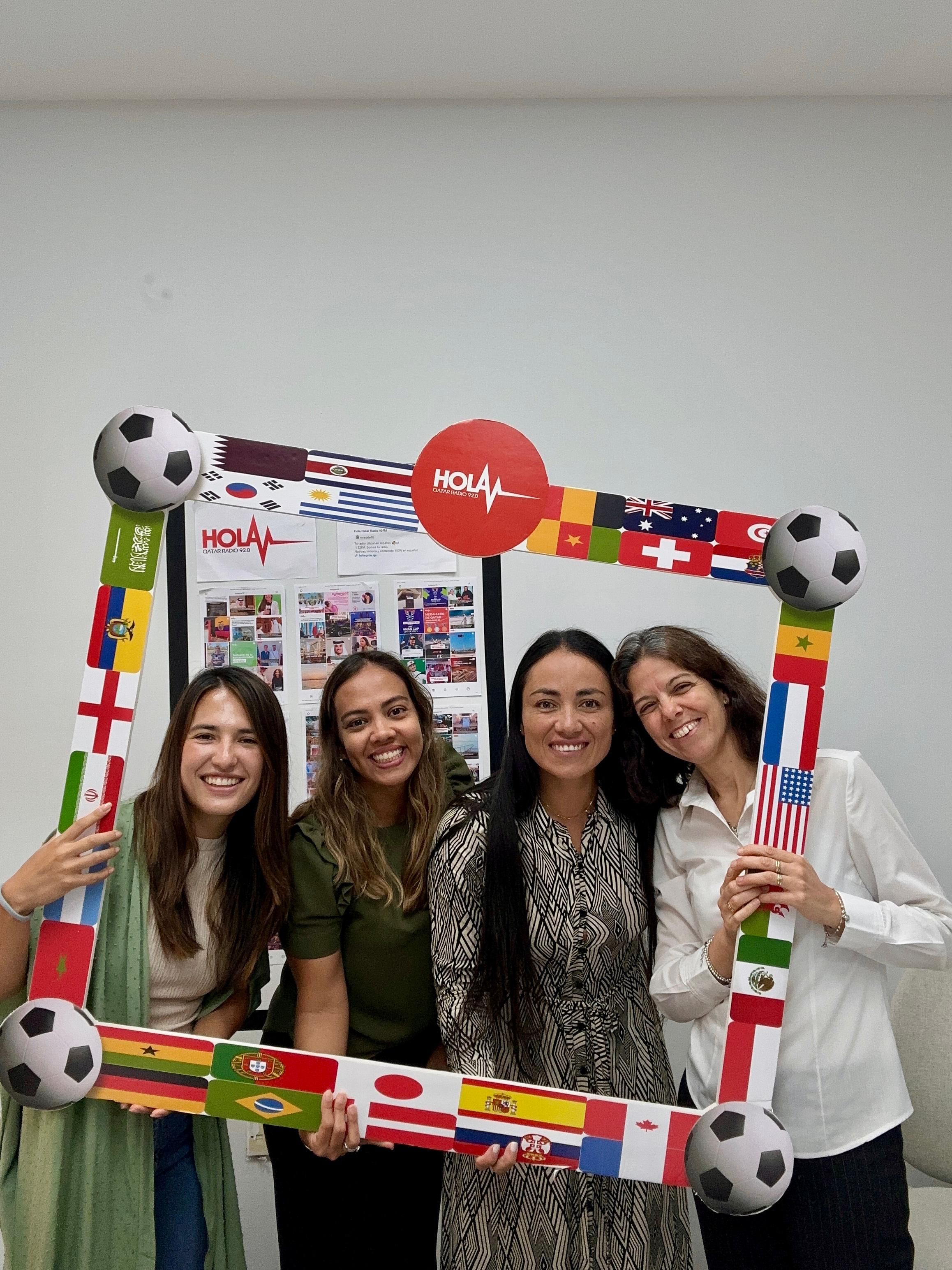
When I first arrived in Qatar, I was struck by the contrast between the desert landscape and the modern architecture. Everything felt so new and full of possibility. I was also impressed by how safe and welcoming the country felt, especially for someone coming from such a different cultural background.
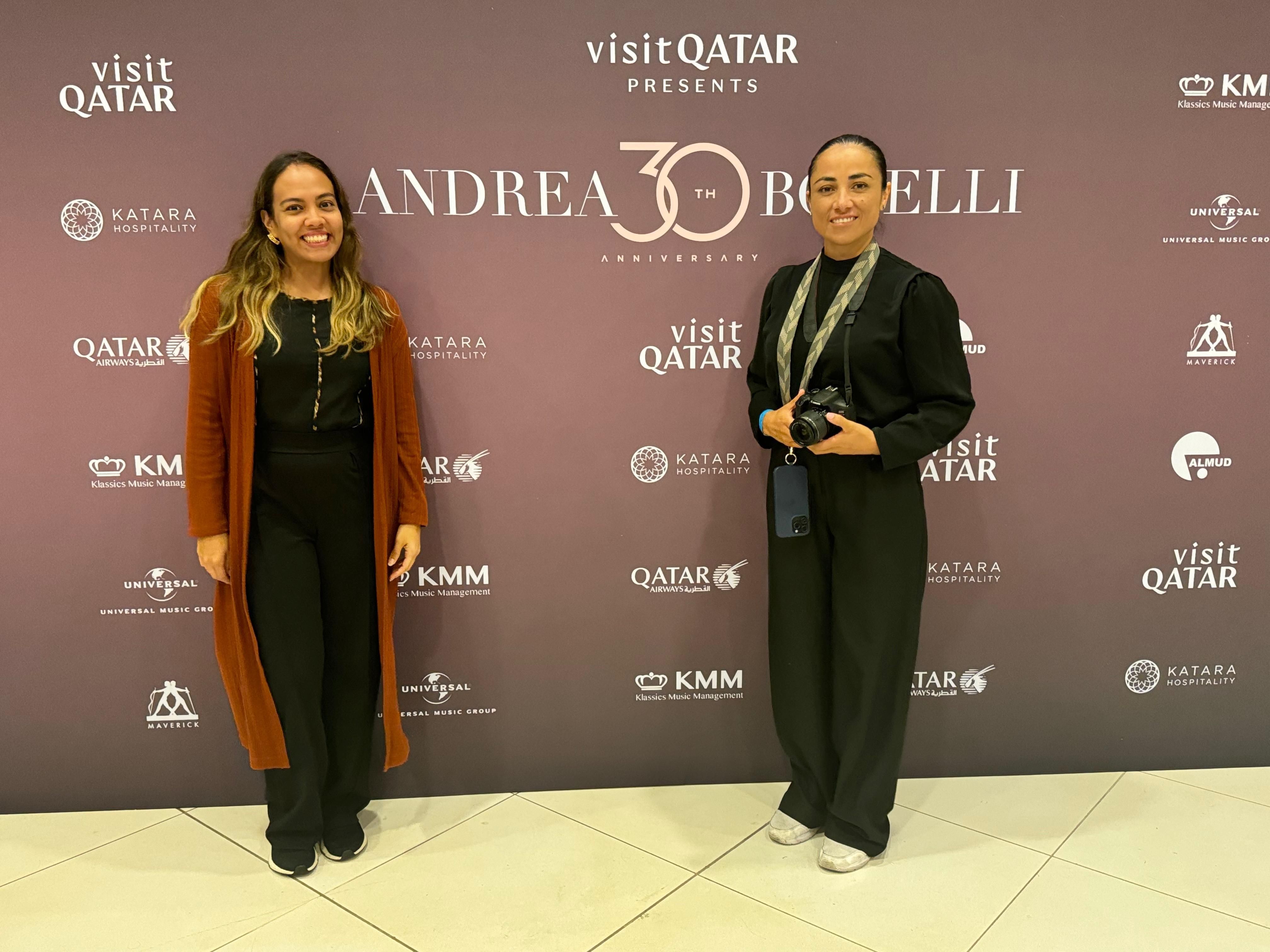
Over the past nine years, I’ve witnessed incredible growth. Not only in terms of infrastructure, but also across cultural and creative sectors. The country has become much more open to artistic expression, international collaboration, and inclusion.
Events like the FIFA World Cup and Expo Doha have brought the world to Qatar and created opportunities for people like me to share our heritage. I’ve also seen a growing appreciation for diversity, which has made it easier to build a community and feel at home here.
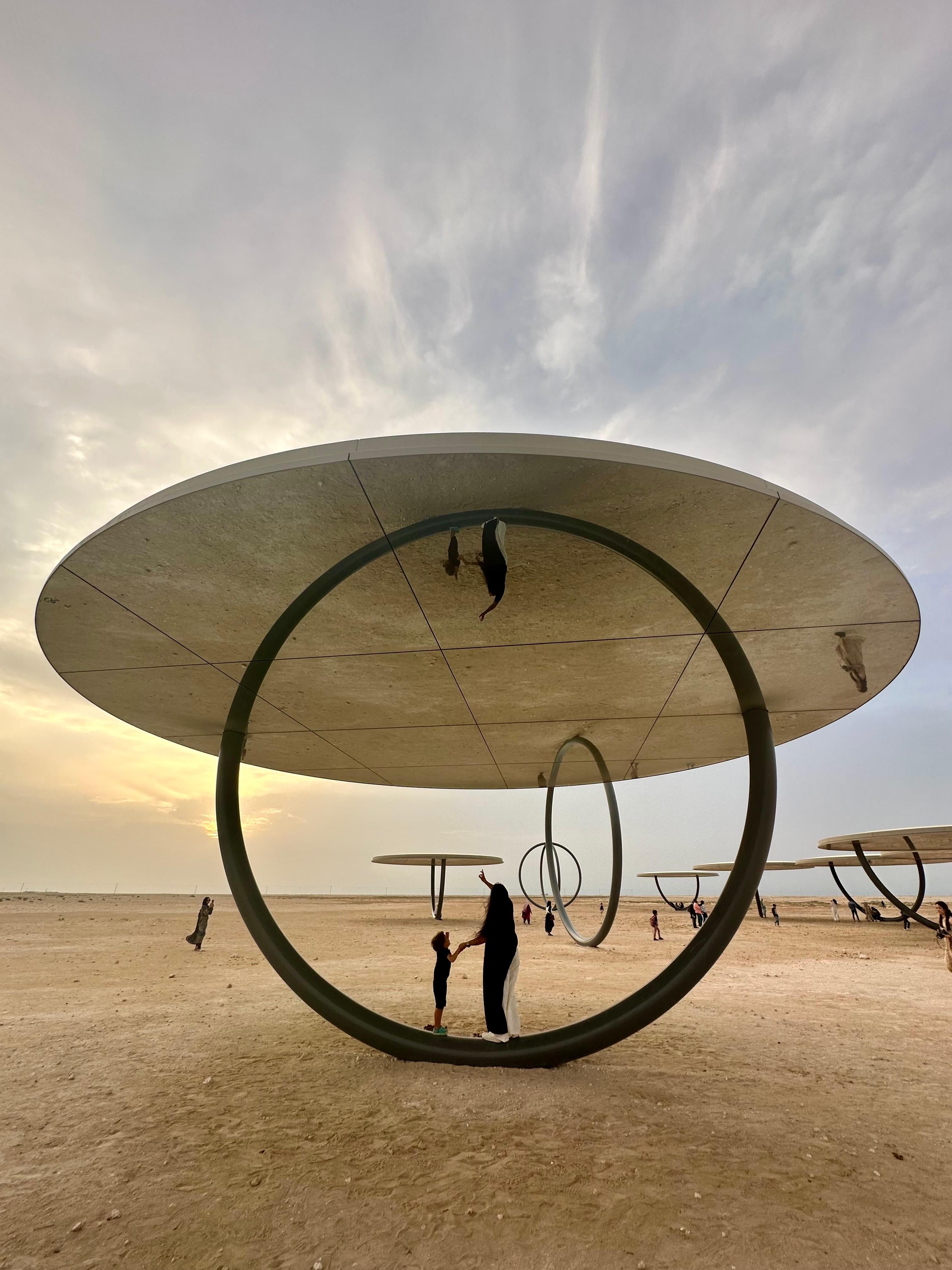
Creating content for Hola Qatar during the FIFA World Cup Qatar 2022™ was an incredible opportunity. It was a historic tournament, and my role focused on connecting with Spanish-speaking fans from all over the world.
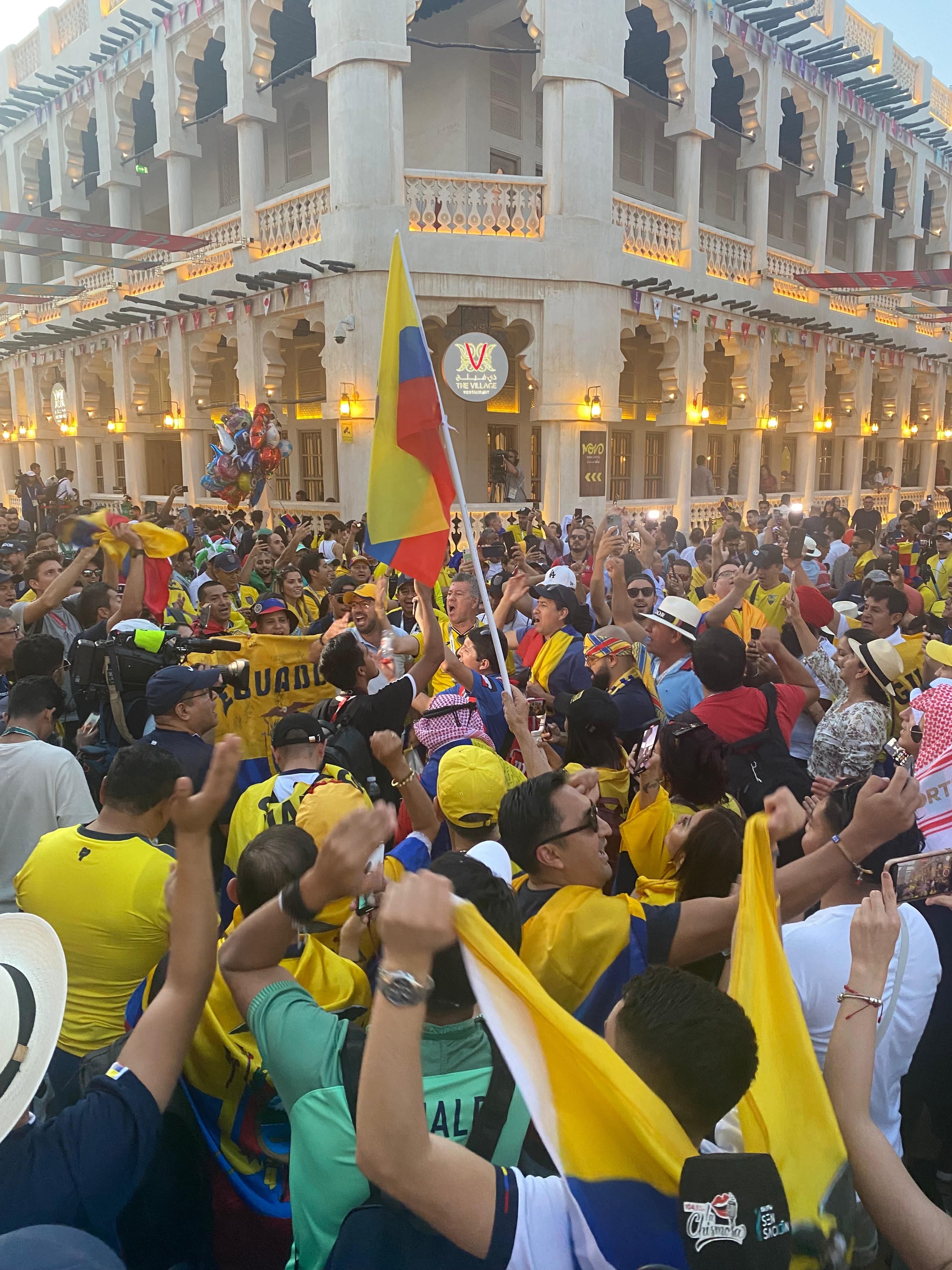
As a long-time resident of Qatar, it was amazing to see how Doha was transformed into a massive celebration, full of colour, music, and joy. I had the chance to cover fan events like the banderazos, where supporters would gather, sing, and cheer for their teams with so much passion. Experiencing football in my own language and sharing those moments with the community was very special.
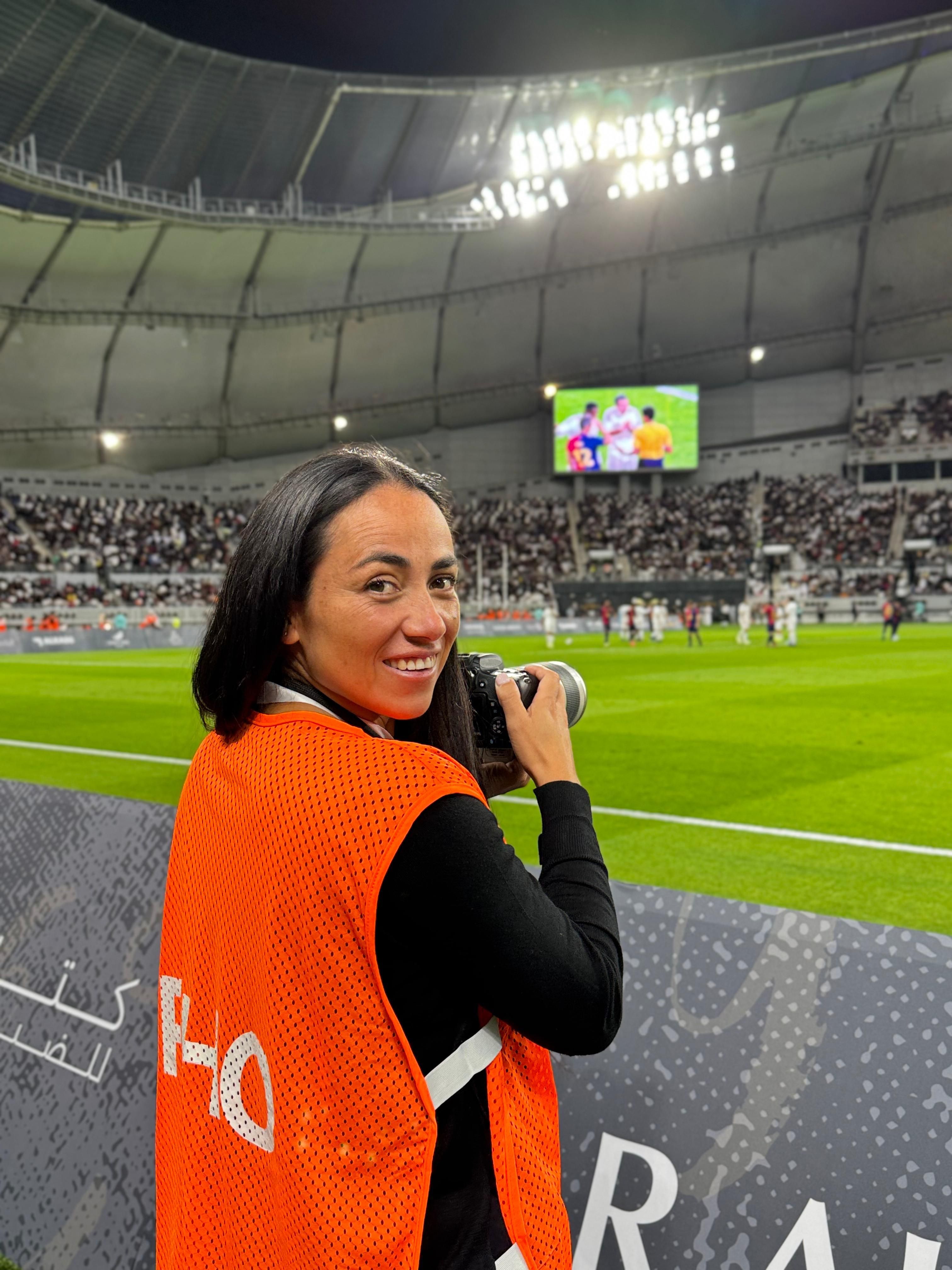
I also covered interviews, visited fan zones, and had the unforgettable experience of working in the stadiums. On top of that, I was able to enjoy some matches as a spectator with my family, which made the entire experience even more meaningful.
I’m fortunate to have the opportunity to cover a wide range of stories for Hola Qatar, including sports events, cultural festivals, and interviews with ambassadors and community leaders. The ones I enjoy the most are the sports events, as Doha hosts world-class competitions, and I’ve always been engaged with the world of sports. There's an incredible energy at these events that I love capturing and sharing with our audience.
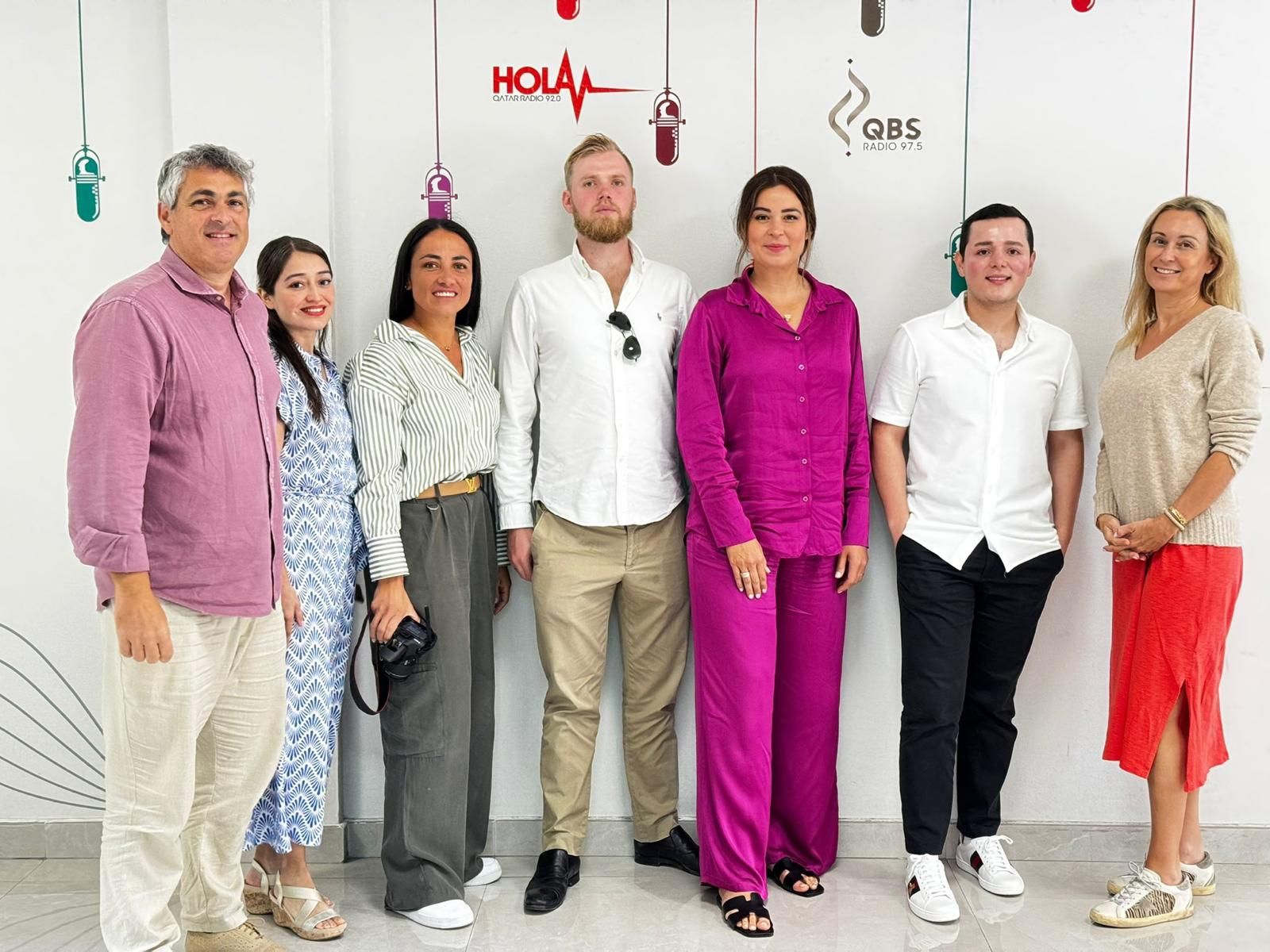
At the same time, I’m also very passionate about covering topics related to education and culture. Qatar regularly hosts international forums that bring together thought leaders from around the world. Being present at these events not only keeps me informed, but also helps me better understand both the local context and Qatar’s broader vision for the future, especially the goals outlined in Qatar National Vision 2030. Every story is a chance to learn and to connect communities through meaningful content.
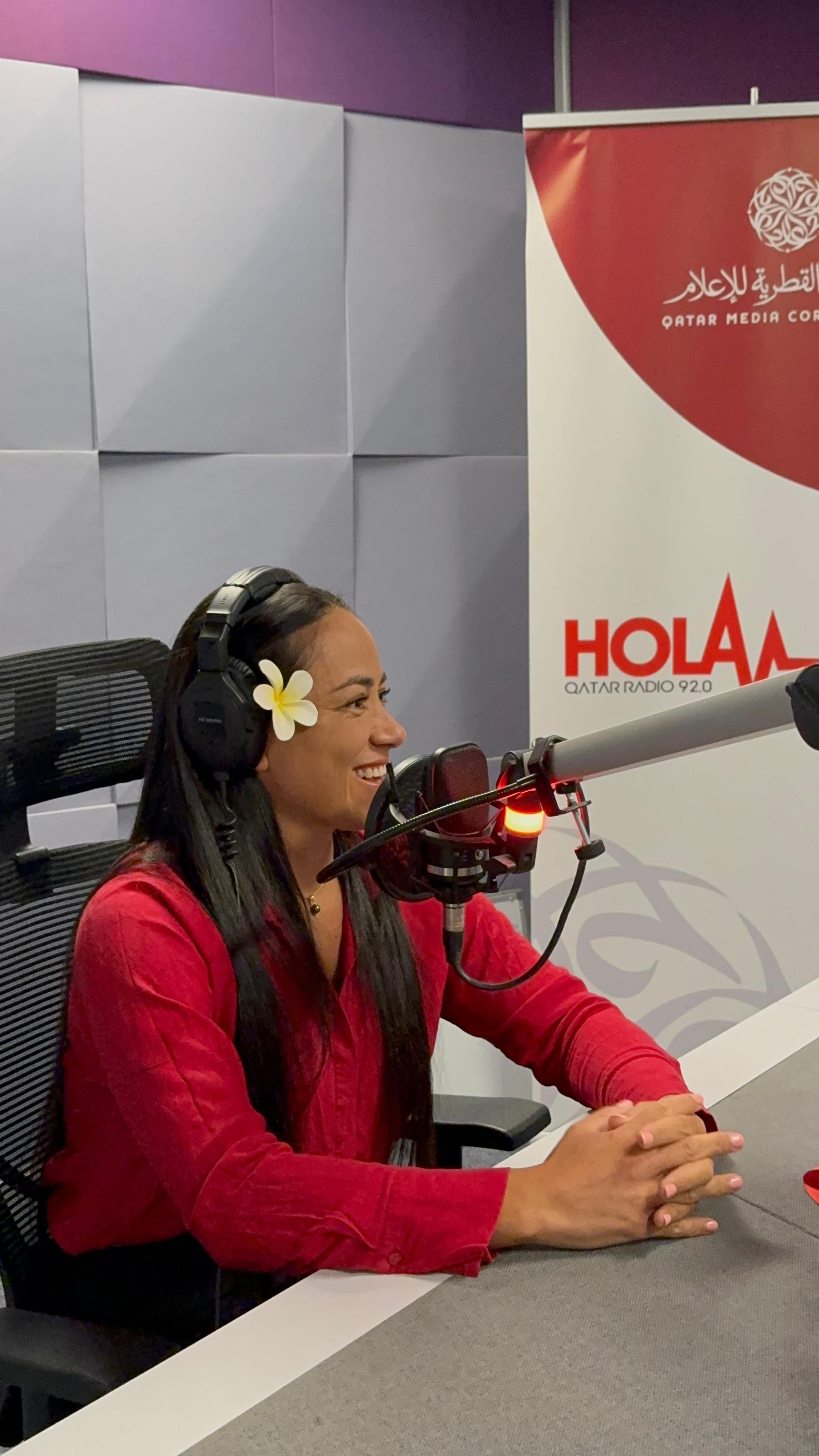
My work with Hola Qatar helps create a cultural bridge between the Spanish-speaking community and local Qatari traditions. By producing content in Spanish that highlights events, customs, and everyday life in Qatar, we make local culture more accessible and relatable. It’s also about showing how our communities can interact with mutual respect and curiosity.
One unforgettable moment was during the FIFA World Cup, while filming at Souq Waqif. I saw many Latin American fans wearing traditional Qatari clothing such as thobes, abayas, and even ghutras. They weren’t worn as costumes, but rather as a gesture of respect and appreciation for the host country.
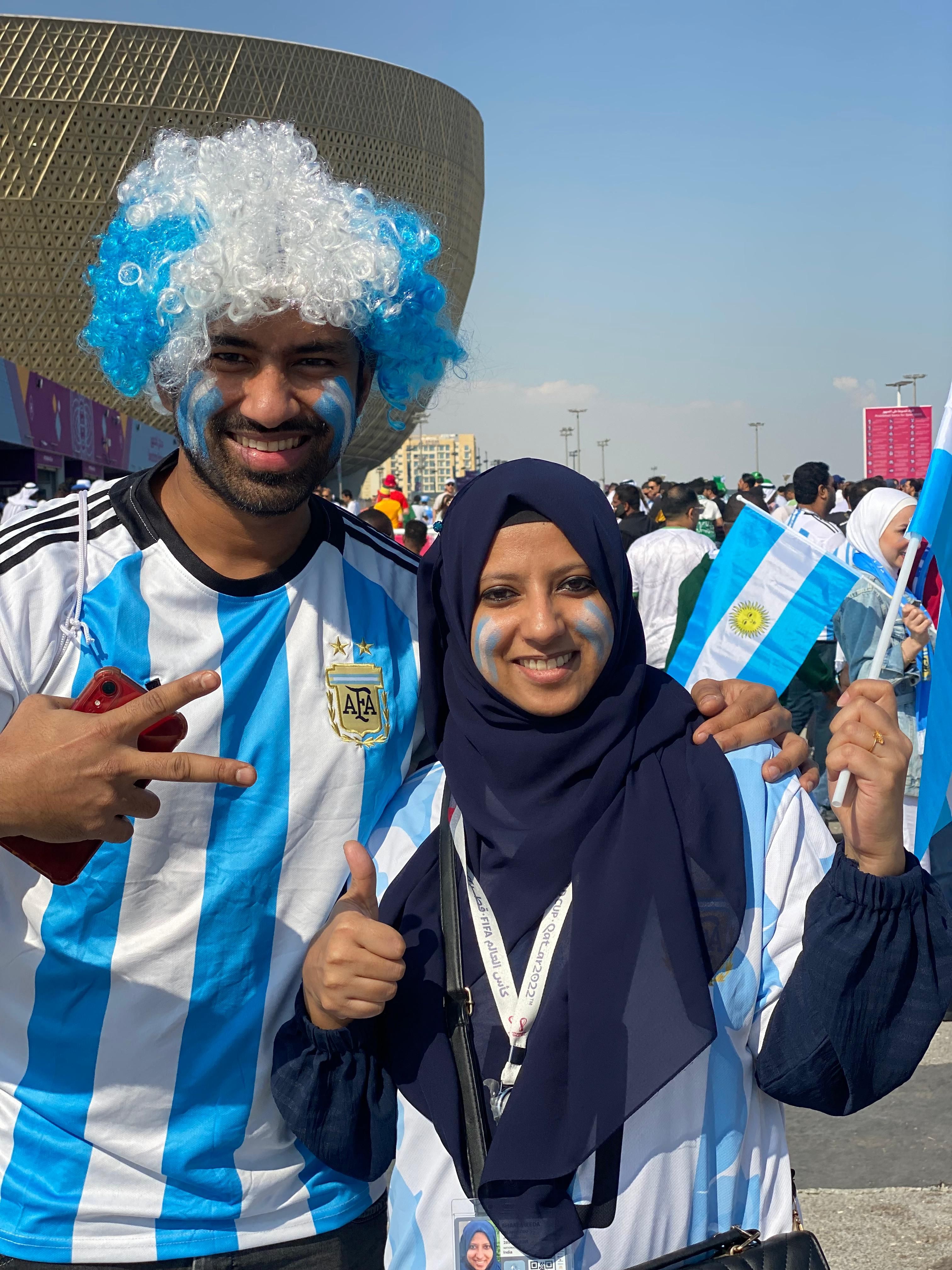
Locals were smiling, taking pictures with them, and even helping adjust their attire. Capturing those genuine interactions on camera was incredibly powerful. It was a perfect example of how storytelling and shared experiences can bring people closer across languages and borders.
Language and culture are incredibly powerful tools when it comes to helping people feel a sense of belonging, especially in a diverse country like Qatar.
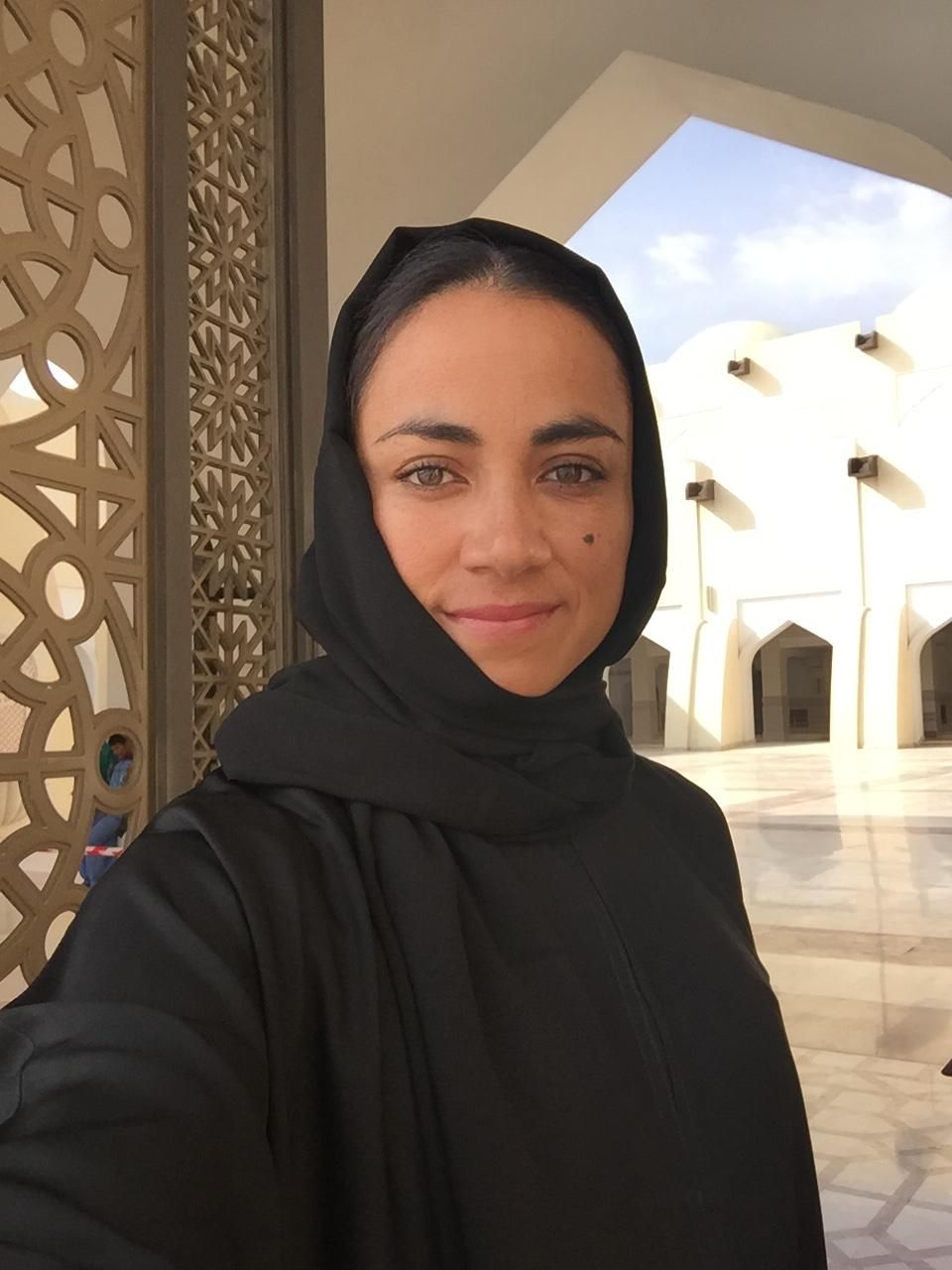
As a Spanish teacher, I’ve seen firsthand how language opens doors. For many of my students, learning Spanish isn’t just about the language itself; it’s about connecting with a new world, understanding cultural nuances, and being able to engage with a broader community.
From a psychological perspective, culture plays a key role in shaping identity and fostering a sense of belonging. When individuals can engage with a culture that resonates with their own or they feel embraced by a new culture, it helps reduce feelings of isolation.
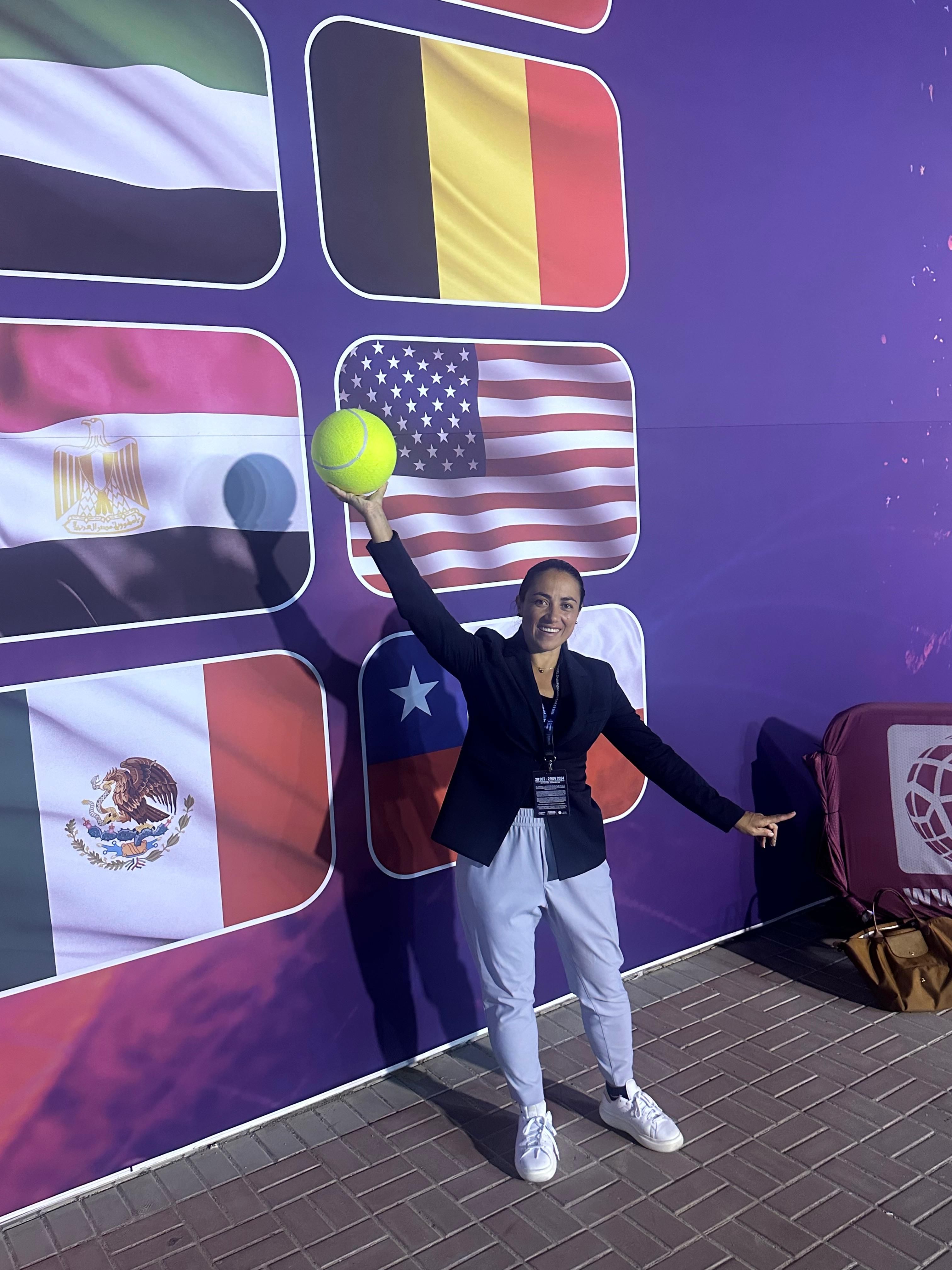
In Qatar, which is home to so many nationalities, both the Spanish-speaking community and locals can learn from each other. It’s in the everyday exchanges, whether through food, music, or shared experiences, that people find common ground and build a sense of home. This contact is essential for mental well-being and for thriving in such a multicultural society.
When we first arrived in Doha, our activities were always closely tied to the natural world around us. We loved going out to the desert, exploring the mangroves, and discovering natural sites.
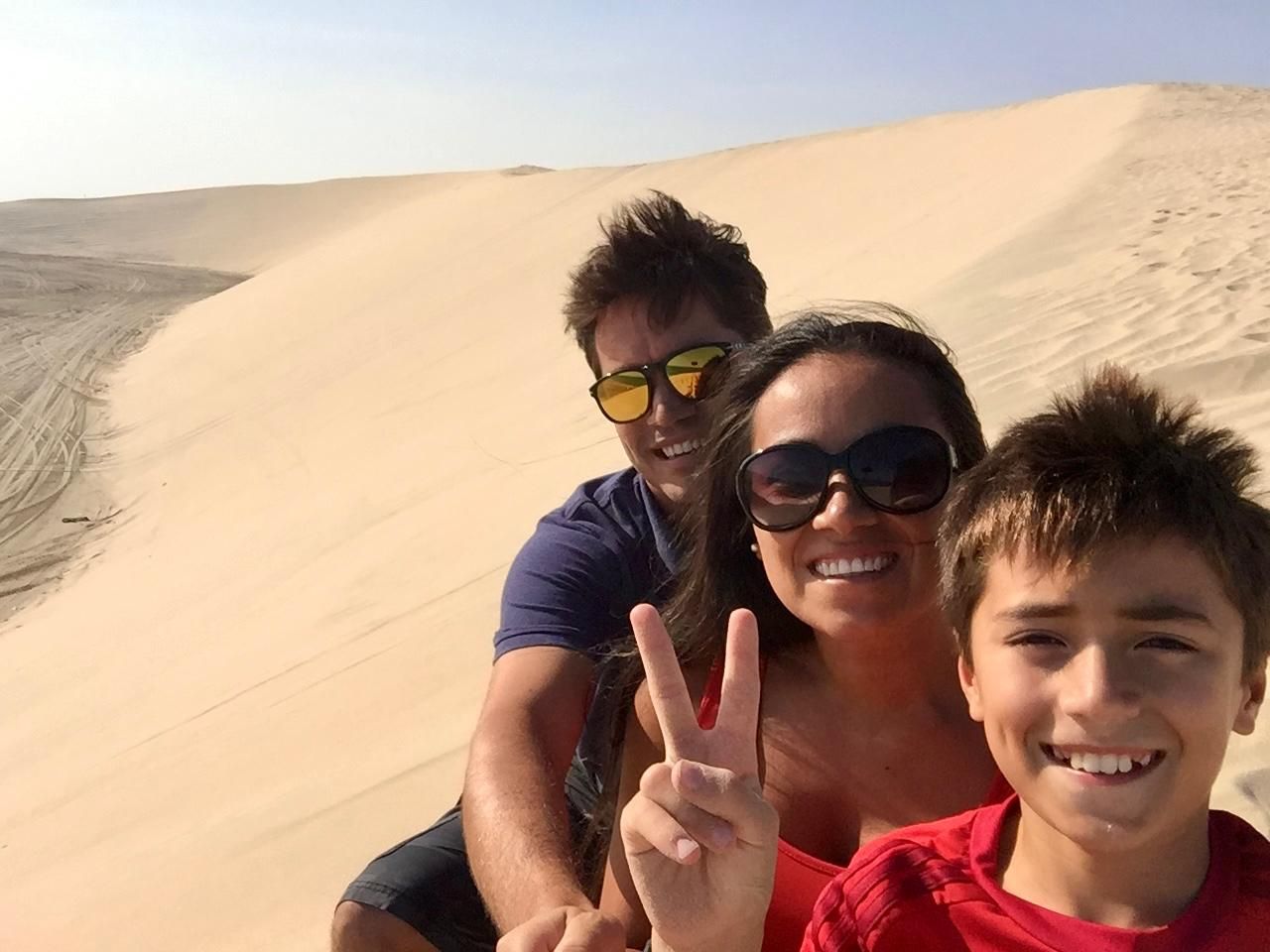
Of course, the beach was always a favourite, especially Fuwairit, where we could enjoy the sea and relax as a family. We also enjoyed cooking together, having barbecues, and going on family outings with friends.
We’ve also had a great time exploring local festivals, like the traditional dhow races in Katara, and visiting the museums. Souq Waqif is another place we love to visit. Its’ vibrant atmosphere, local crafts, and delicious food always make it a special outing for us.
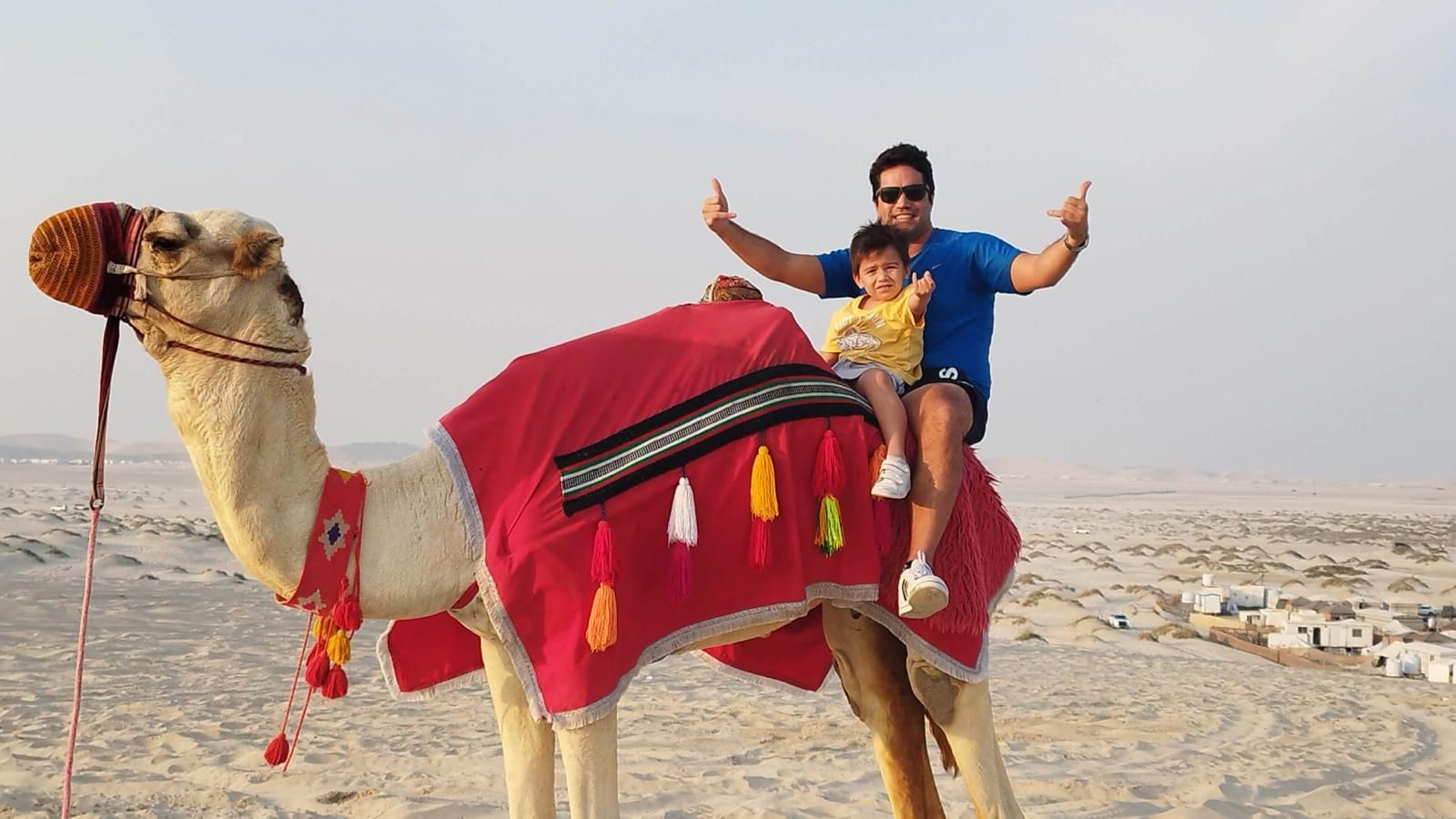
Although Rapa Nui and Doha are worlds apart in many ways, there are surprising cultural connections that have made my transition easier. Both places place a strong emphasis on family and community. In Rapa Nui, family is everything, and I’ve noticed those same values here in Qatar.
Another similarity is the respect for traditions and heritage. On Rapa Nui, we preserve and celebrate our ancestral culture through dance, language, and rituals, and in Qatar, I’ve seen a similar respect for local traditions, whether through the preservation of Arabic customs or the celebration of important cultural events.
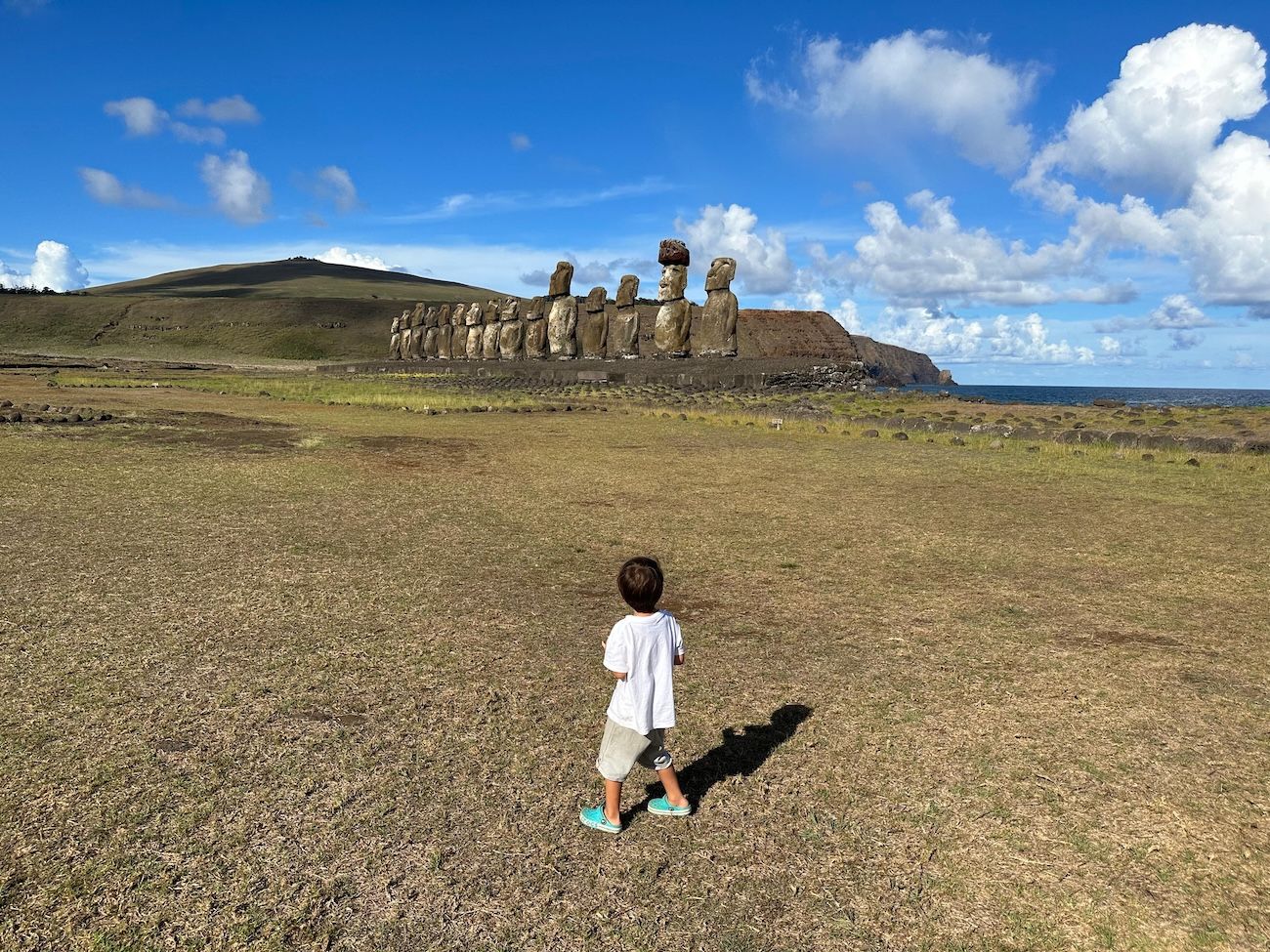
Both places also have a deep affinity with the land and sea. In Rapa Nui, the ocean is central to our way of life, just as the sea plays an important role in Qatar’s culture and economy. Whether it's the traditional boat races in Rapa Nui or the dhow races in Qatar, the love for the water and maritime traditions is something I can really relate to.
Maintaining my connection to Rapa Nui while living in Doha is essential for me, and I do it through a combination of daily practices and cultural traditions. One of the most important ways I stay connected is by speaking Rapa Nui at home with my family, ensuring that our language and customs are passed down to the next generation.
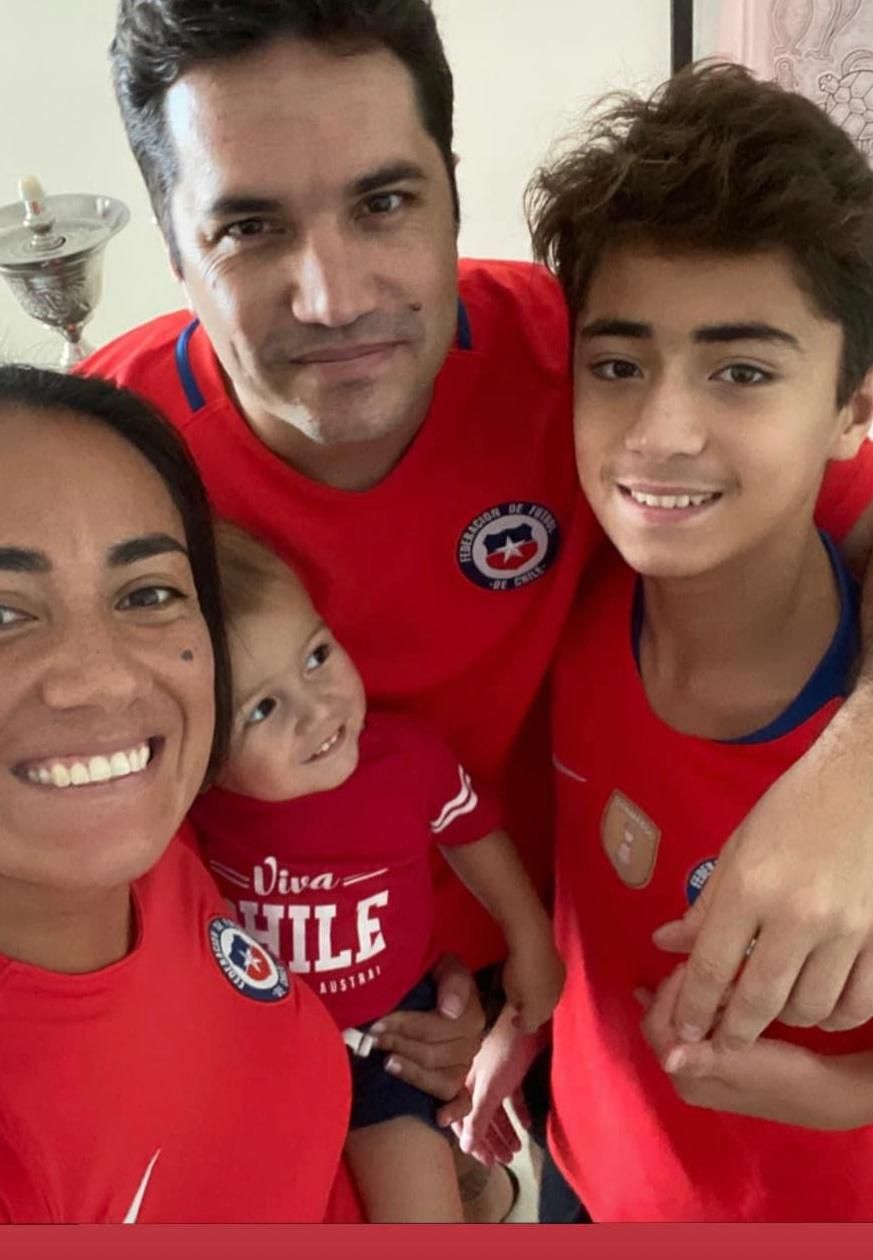
I also continue to practice traditional dance, which has always been a significant part of my life. It’s a way for me to express my culture and feel grounded, even while far from home. In addition, I cook traditional Rapa Nui dishes, using local ingredients to bring a taste of the island into our daily lives.
Being active in the local community and sharing my culture with others, through events or small gatherings, also helps me stay connected. These practices remind me of where I come from and keep Rapa Nui’s traditions alive in my family’s routine.
I’m incredibly excited about the opportunities that the Qatar, Argentina and Chile 2025 Year of Culture will bring for deeper ties between the Qatari and Latin American communities. I hope this initiative will create more spaces for cultural exchange, where people can learn from each other’s traditions, art, and values. For me, it’s important that both Qatari and Latin American cultures are seen and appreciated not just in their own contexts, but through the lens of mutual respect and curiosity.
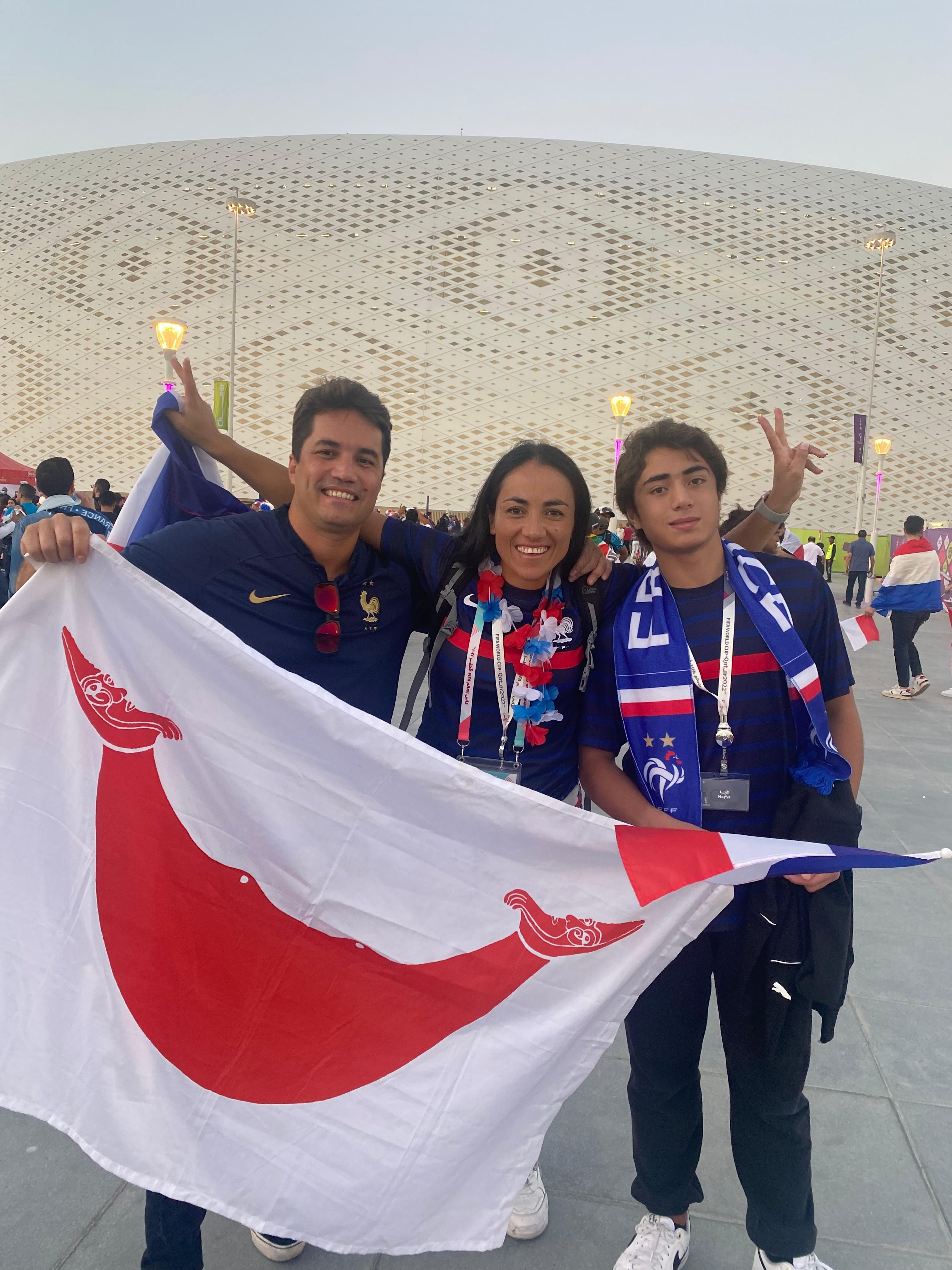
One of my hopes is that we can bridge cultural gaps through shared experiences such as art exhibitions, music festivals, dance performances, and food events. These are universal ways of connecting that transcend language and geographical boundaries.
Through the Year of Culture, I believe we can also highlight the common values we share, such as the importance of family, community, and preserving our heritage. It’s a wonderful opportunity to create lasting relationships and a deeper understanding between our cultures, strengthening the bonds that already exist and encouraging future collaboration.
Personally, my dream is to see a moai from Rapa Nui in the National Museum of Qatar, crafted by my own family, and to represent our culture on the other side of the world. This would be an incredible way to showcase the rich heritage of Rapa Nui and share it with the people of Qatar.
For me, "home" is where I can live with my family, stay close to my roots and culture, and learn from other cultures, religions, and beliefs. It’s about coexisting with those differences and finding strength in the diversity around me.
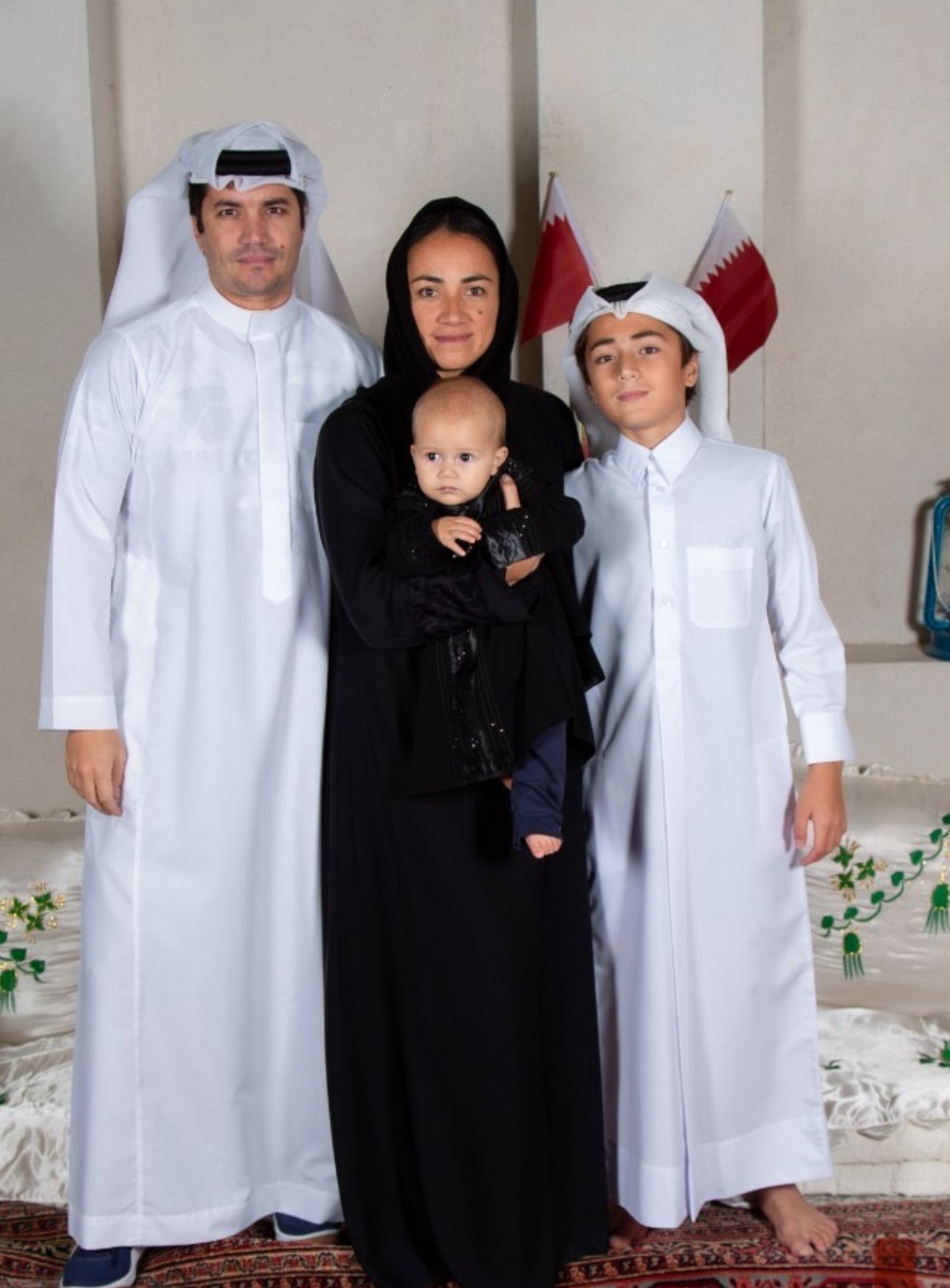
Home is not necessarily a physical place, but what you create. The knowledge, experiences, and bonds you build with your family and community. It’s the sense of belonging that comes from nurturing your identity while being open to the world and its many stories.
In a way, "home" is wherever we feel understood, respected, and at peace with who we are. Today, Qatar is my home. It’s the place where I’ve built new connections, embraced new experiences, and continue to grow alongside my family.
Explore what's happening in Doha as part of the Qatar, Argentina and Chile 2025 Year of Culture.
Read more articles and interviews with Chilean and Argentinian creatives, entrepreneurs and community members living in Doha.